Long and short of it Study examines perceived impacts of short-term international courses
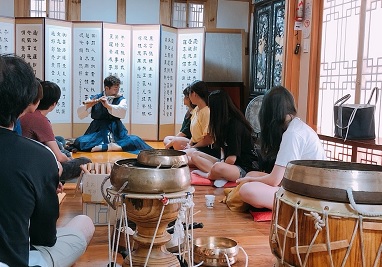
Though brief in duration, short-term global and cross-cultural learning experiences may have broad impacts on students’ personal and academic development, particularly on their future study ambitions and career path, says a new study by a University of Tokyo researcher. The findings could help serve as a guide for designing such short-duration courses in the future.
Short-term intensive international courses are credit-bearing educational programs, lasting as little as a week to several weeks, aimed at encouraging students to attain global experiences and diverse perspectives in a nontradtional intercultural, intellectual setting.
Although universities in different countries are ramping up efforts to adopt these courses as a new teaching medium to nurture global awareness and skills in students, few studies have focused on their quality and impact on student development.
“The shortage of research on the high-quality pedagogy of short-term international courses motivated this study,” said Yusuke Sakurai, a UTokyo researcher specializing in higher education, who authored the paper.
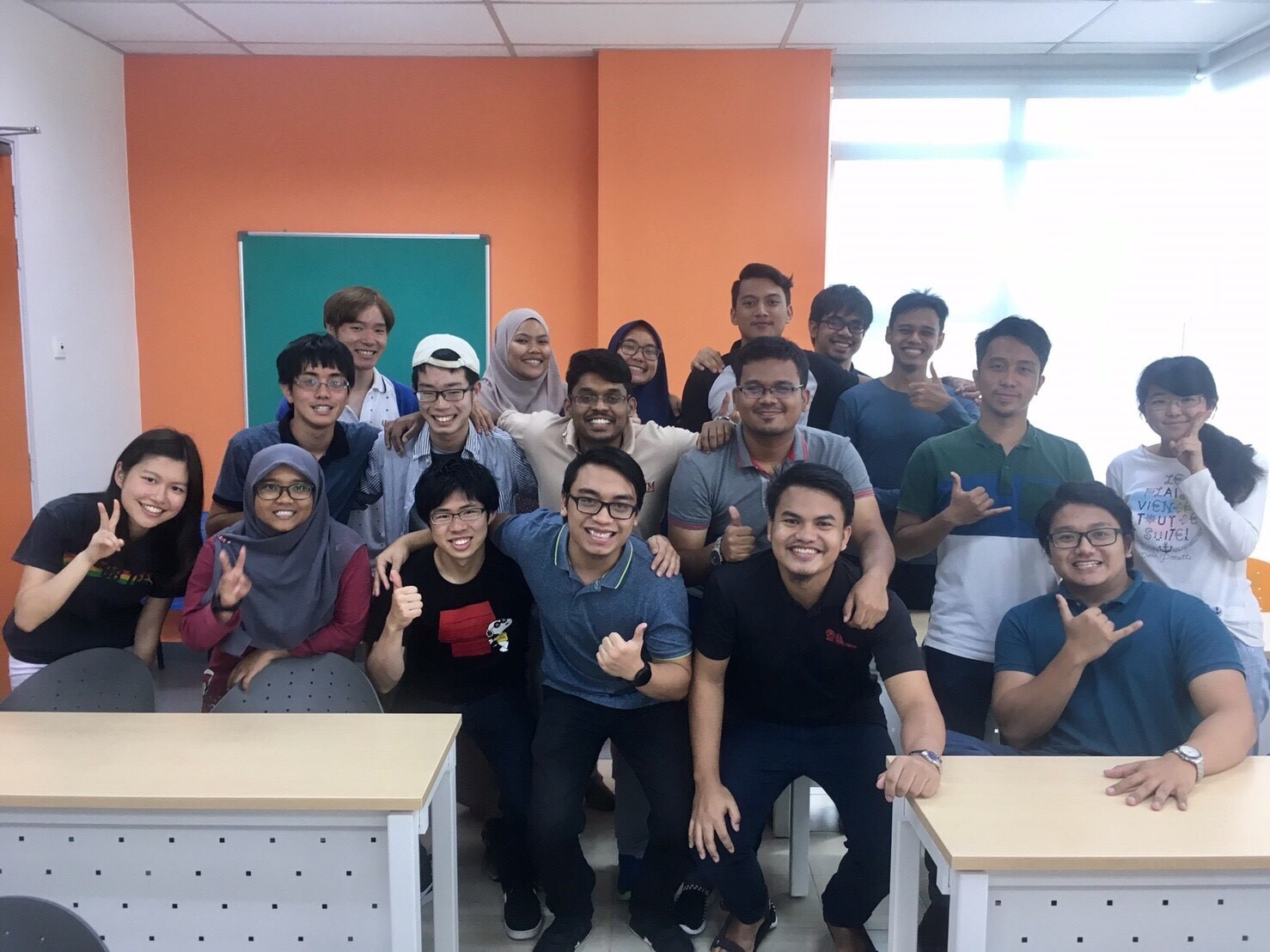
© 2019 Center for International Exchange, The University of Tokyo.
For his research, Sakurai interviewed 20 students in a post-course survey to examine the perceived impacts the geographically and academically diverse short-term programs had on the interviewees, who enrolled in the courses as part of their undergraduate liberal arts curriculum at a Japanese university. The courses were offered at host institutions in Australia, Hungary, Germany, China and Japan.
The interviews focused on topics ranging from the students’ reasons for participation, pre-departure preparation, experiences on the trip to post-course projection for future study and self-development. Sakurai then coded the answers into key themes.
Based on the responses, the study showed that the courses had multifaceted impacts on the students’ development – all participants commented on experiencing personal growth and gaining a global perspective based on a newfound outlook on different people and cultures.
Notably, students most often commented on experiencing a revised motivation for future study and career opportunities rooted in their interaction with local and same-university peers that led to new perspectives for re-evaluation of their self-understanding and attitudes toward university study.
The findings also point out that, likely due to the short-term nature of the courses, students less often mentioned the impact on reaching a deep understanding that led to a profound modification of their attitude toward academic subject matter. As the subject for further study, Sakurai has decided to take on the topic of how students’ learning of academic subject matter can be improved.
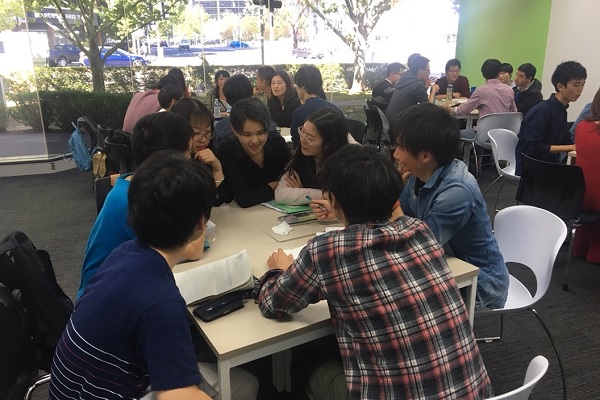
© 2019 Center for International Exchange, The University of Tokyo.
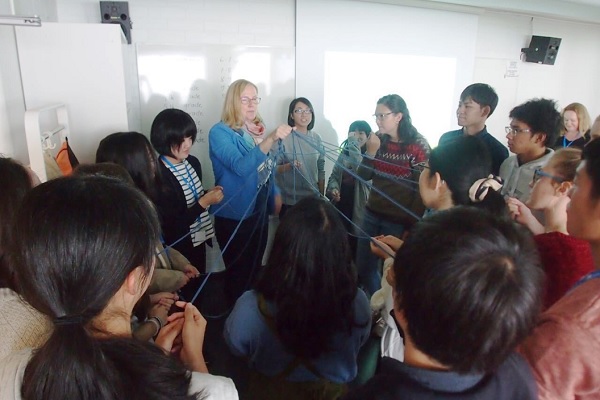
© 2019 Center for International Exchange, The University of Tokyo.
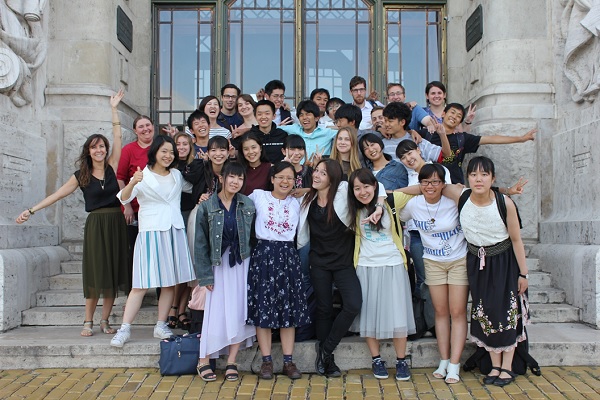
© 2019 Center for International Exchange, The University of Tokyo.
Moreover, while the results demonstrated unique and meaningful impacts, which traditional in-class courses do not offer, the study also revealed a potential drawback.
“The ‘insider’s culture shock’ may occur among same-university peers owing to the different levels of students’ global competence” such as communication skills in a foreign language, said Sakurai. “In contrast to common study abroad programs, this is a unique phenomenon in short-term international courses where a group of students from the same institution participate in the same course.”
Participation in international programs, per se, often involving relocation abroad, does not automatically lead to effective learning through experience. Sakurai stresses the need for well-thought-out course design.
“I strongly believe that course design most certainly affects students’ development,” he said. “It is of critical importance for the faculty in charge to strategically design courses and incorporate students’ critical reflections about their development as part of the course experience.” He added: “Our findings offer a conceptual tool for the design of new and existing courses.”
The current study raises the importance of future research to investigate whether the influences of students’ experiences are longstanding or whether the impacts wear off over time, especially after students return home and re-enter familiar settings and former peer networks.
Papers
Yusuke Sakurai, "Students’ perceptions of the impacts of short-term international courses," Journal of Research in Innovative Teaching & Learning : December 1, 2018, doi:10.1108/JRIT-10-2017-0026.
Link (Publication )
)
Related links
- Graduate School of Arts and Sciences

- Globalization Office

- Researcher’s website

- Researcher’s Google Scholar page






